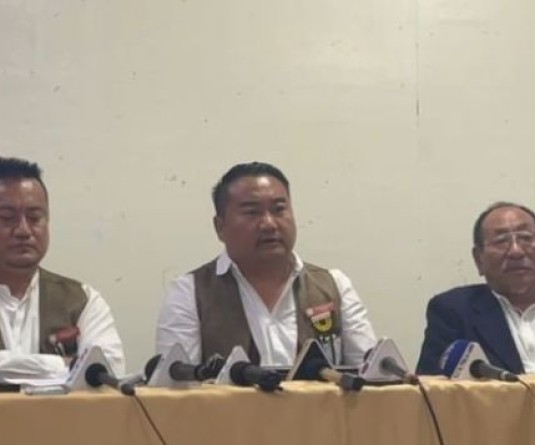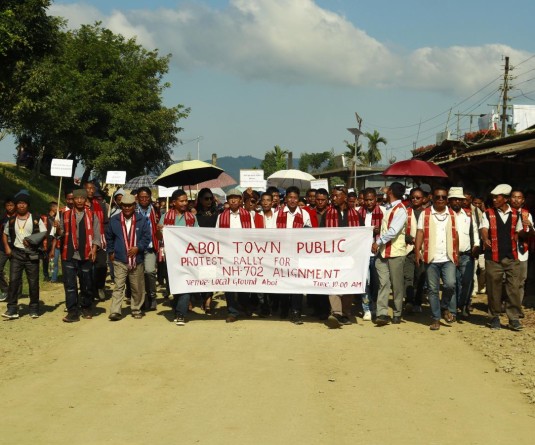
Naga Scholars assert basic framework for Indo-Naga settlement and for negotiations to be inclusive
New Delhi, September 1 (MExN): The Naga Scholars’ Association (NSA) has adopted a ‘Communiqué’ on the ‘Naga-India Framework Agreement’ that maintained that the “ongoing initiative” for Naga-India political settlement between the National Socialist Council of Nagalim (NSCN-IM) and the Government of India (GoI) should “take cognizance of the political realities and aspiration of the Nagas for self-determination” and be within a “timeframe.”
The NSA had organized a three-day ‘in-house’ workshop on the ‘Naga-India Framework Agreement’ at the University of Delhi from August 13 to 15, 2016.
In the time that a comprehensive document of the workshop deliberations and findings is being developed, a ‘Communiqué’ was adopted by the 20 participants as an outcome of the workshop, informed a press release from NSA President Dr. Zuchamo Yanthan and General Secretary Dr. Gideon Shadang.
While acknowledging the ‘Framework Agreement’ signed by the Naga Collective Leadership and the GoI, the participants noted that the Naga-India conflict is “quintessentially a geo-political issue between the two entities.” Therefore, settlement to the Naga-India issue must be “political, based on the rights and aspirations of the Nagas.” The ‘Communiqué’ reiterated that solution to the Naga-India political issue must be based on “the unique history and situation of the Nagas,” which, it acknowledged, has also been recognised by the Government of India.
It reminded that the ideology of “modern sovereign Naga nation rooted in shared socio-cultural experience, political aspiration and self-determination” was first made known to the world through the Memorandum of the Naga Club to the Simon Commission in 1929.
Further, in pursuance of the conviction for self-determination, the Nagas, under the aegis of Naga National Council declared Independence on 14 August 1947, a day before the declaration of India’s Independence. The Naga declaration of independence was reaffirmed in the Naga Plebiscite of 1951 to dispel the manoeuvres and undermining elements of the Government of India and Government of Burma (Myanmar) on the legitimacy of the declaration of Naga independence in 1947.
The ‘Communiqué’ also noted that the Nagas have never entered into a treaty for merger with or annexation to any state, be it India or Burma (Myanmar). “Nagas were divided through different divisive instruments - Treaty of Yandabo (1826) signed between British-India and the King of Burma; 16-Point Agreement (1960) and Shillong Accord (1975),” it maintained. In this context, it called for the two negotiating parties to take cognizance of the “political realities and aspiration of the Nagas for self-determination.”
The document asserted that “territorial integration of the contiguous Naga areas should be part of the settlement,” as this is a political right.
“Any agreement that would be signed should accord Nagalim with legislative, executive, judiciary and financial powers outside the purview of the Union of India,” it stated while affirming that the political structure of Nagalim should be “democratic and representative.”
The ‘Communiqué’ maintained that the GoI should not “disrupt the unity” of Nagas in the process of negotiation, which will only “delay and derail” the political settlement of fulfilling Naga aspirations.
In this regard, the participants remained concerned that the ongoing negotiation between Nagas and India for the last 19 years has “created space of suspicion on the sincerity and political will of the Government of India.” Therefore, solution to the Naga-India problem “must be sought within specific timeframe.”
A strong point asserted that the solution to the Naga issue “should not be diluted and sabotaged on the pretext of protecting territorial integrity of neighbouring states.”
“The Nagas have suffered and sacrificed too long in their conviction and struggle for self-determination. So the process of negotiation should be inclusive of the rights and aspirations of the Nagas,” it stated.





